#m train
Text

obsessed with how these sentences follow each other up. oh, to be reborn as something else. but alas, the snow continues, the world continues. we are here and alive and i go out to greet the world.
13 notes
·
View notes
Text
I believe in movement. I believe in that lighthearted balloon, the world. I believe in midnight and the hour of noon. but what else do I believe in? Sometimes everything. It fluctuates like light flitting over a pond. I believe in life, which one day each of us shall lose. When we are young we think we won't, that we are different. As a child I thought I would never grow up, that I could will it so. And then I realized, quite recently, that I had crossed some line, unconsciously cloaked in the truth of my chronology. How did we get so damn old? I say to my joints, my iron-colored hair. Now I am older than my love, my departed friends. Perhaps I will live so long that the New York Public Library will be obliged to hand over the walking stick of Virginia Woolf. I would cherish it for her, and the stones in her pocket. But I would also keep on living, refusing to surrender my pen.
Patti Smith, M Train, 2015
11 notes
·
View notes
Text

JOMP BPC - 15th February - Love Yo' Self
This might seem like an odd choice for this prompt, but M Train is one of my favourite non-fiction books and in part that's because of how tolerant and patient Patti Smith appears to be in it towards herself and her struggles and eccentricities. In this book, particularly when she writes about her creative life, she models something really helpful for me in terms of my attitude towards my own creative life.
I have an imaginary gang or coven of creative women who I consult when I'm struggling - I talk to them when I'm trying to work something through in my mind, I tell them my woes, I try out my crazier ideas on them. Patti is one of the gang :-)
3 notes
·
View notes
Text
Eastern Division Plans

View On WordPress
#brooklyn#Canarsie Line#j train#Jamaica Line#L Train#m train#mta#Myrtle Line#New York#nyc#subway#transit#Transportation
4 notes
·
View notes
Text
All I needed for the mind was to be led to new stations. All I needed for the heart was to visit a place of greater storms.
— Patti Smith, M Train: A Memoir (Knopf, October 6, 2015 (via Thoughts)
6 notes
·
View notes
Text

Patti Smith
2 notes
·
View notes
Text
my thought processes had the destination futility of a child's locomotive - Patti Smith, M Train book
3 notes
·
View notes
Note
Can I just say how I love the fact that you started the Jily M rated express and how you will end it! It’s like it was made just for you 😉 😳🔥
Thank you lovely anon! I believe @joyseuphoria and @practicecourts may have had similar thoughts, although I believe they expected I'd do smut instead of angst. 😂
I also get a turn in the middle! I'm very spoiled!
When there's not a train with smut, just derail another train 💅😝
4 notes
·
View notes
Text

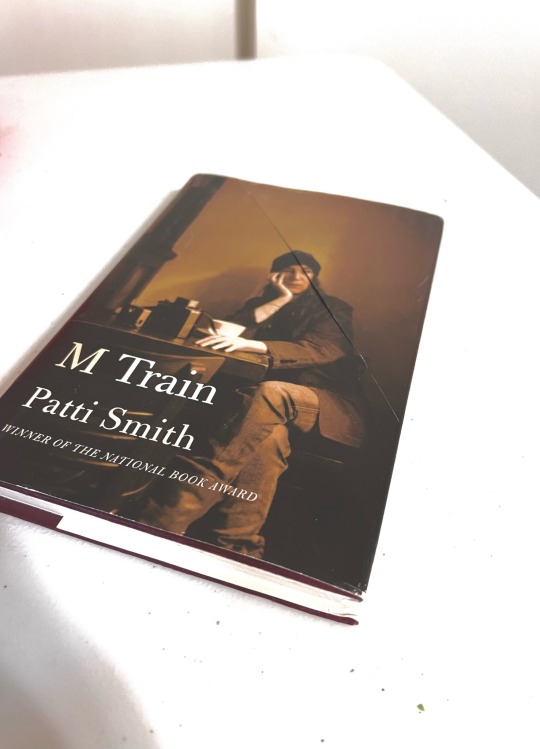
Studying on a rainy day with coffee and finally my adderal. Been out for a couple weeks and it was driving me crazy. I also got a new book I’m looking forward to reading on my breaks. Not a half bad day so far.
#messy studyblr#studyblr#adhd studyblr#messy notes#study aesthetic#sociologyblr#adhd brain#adhd#study hard#adhd post#adhd student#adhd stuff#adhd things#living with adhd#chaotic studyblr#m train#patti smith#reading is good for the soul#new book#memoir
7 notes
·
View notes
Text
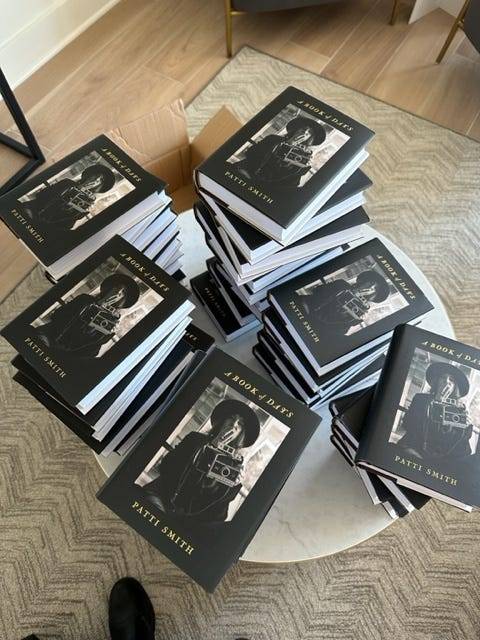
patti smith via substack
#patti smith#a book of days#just kids#m train#patti smith a book of days#reading#books#book tumblr#curators#bruttoarchives
3 notes
·
View notes
Text
Okay so I know Taylor just released her new album BUT SO DID MEGHAN TRAINOR AND THEYRE BOTH AMAZING
Don't sleep on Meghan please she's finally doing her signature sound again!!!!
Give them both some love!!!!
Her new single is out and it's SO MUCH FUN
She's got the car guys! The car!!! Love 💗💕💖
youtube
#Meghan Trainor#Taylor Swift#M train#Ts#Music#Album release#Love#Barbie love#Feminine empowerment#Feminine#Feminist#Femininity#Female artists#New album#Midnights#Takin' it Back#Happy#Barbie#Dream house#Dreamhouse#Made you look#Youtube
12 notes
·
View notes
Text
Pictures from Patti Smith's book "M Train". The book wouldn't be the same without photographs taken by Patti herself. It's amazing how by capturing seemingly ordinary objects she adds beauty to them and makes them special.



3 notes
·
View notes
Photo
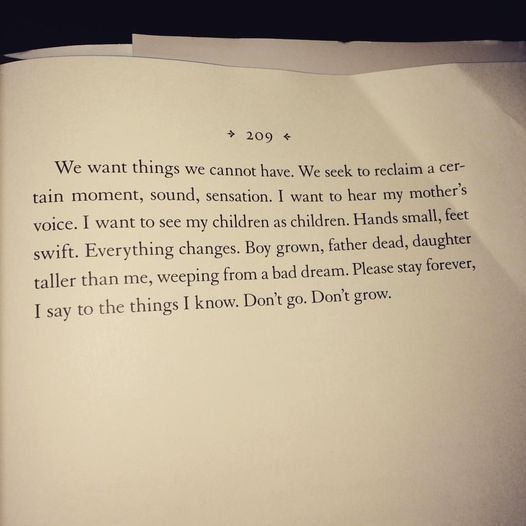
A beautiful passage from Patti Smith's 'M Train'
[h/t Far Out Magazine]
12 notes
·
View notes
Photo

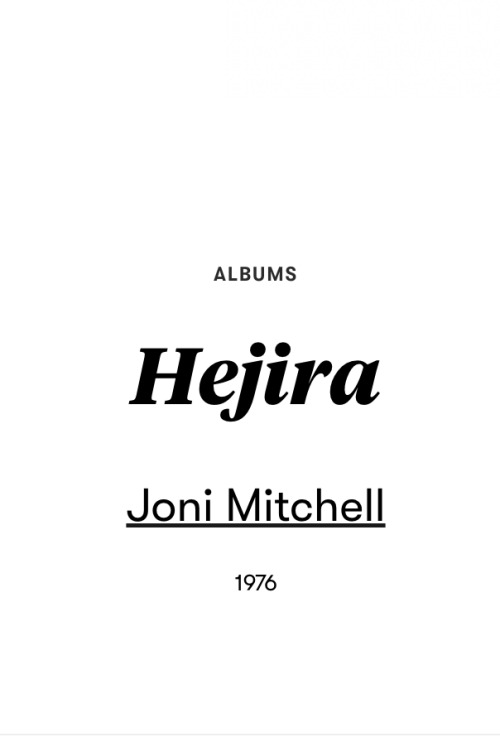
Joni Mitchell | On “Amelia,” she becomes the sky...
was running away. From what or where to have never been as vital in Mitchell’s songs as her in-betweens—between relationships and cities, between heartbreak and repair, between chords and tenses. From her early song “Urge for Going” through her travelogue classic Blue and beyond, Mitchell typified the woman wanderer, rarely represented in music. Hejira, her sprawling eighth album, embodies this quintessence. The road rolls out of her like a surrealist painting on the cover, combining bold realism and abstraction. Mitchell interprets the Arabic title meaning “departure” as “escape with honor.” She was returning to herself. “I suppose a lot of people could have written a lot of my other songs,” Mitchell once said, “but I feel the songs on Hejira could only have come from me.” ...
Thirty-two years old with no license, Mitchell drove this band of outsiders east before looping back solo, down the coast of Florida and then along the Gulf of Mexico, “staying at old ’50s motels and eating at health food stores.” She adopted fake names like “Charlene Latimer.” She was often disguised in a red wig. She wrote most of Hejira on the guitar she kept in her white Mercedes. “I was getting away from romance, I was getting away from craziness,” Mitchell said, “and I was searching for something to make sense of everything.”
Hejira exalts the art of being a woman alone. It is restless music of road and sky, of interior and exterior weather suspended, epic and elemental. Her narratives unfurl with driving forward motion, telling stories of black crows and coyotes, of cafes and motel rooms; a bluesman and a pilot; psychics, hitchhikers, mothers, a guru. She contemplates eternity in a cemetery. She sees Michelangelo in the clouds. She hears jazz in the trees. Blue’s optimistic “traveling, traveling, traveling” gives way to an insatiable “travel fever,” each cartographic song extending the road further from Savannah to Staten Island to Canadian prairies, from Beale to Bleecker Streets. Her solitude distills the details into ascetic elegance...
Hejira’s tenor is one of personal reconstitution, but Mitchell populates the lyrics with characters she met along the way, some literal, some symbolic, each representing a fundamental component of her character. “Furry Sings the Blues” describes her actual visit with the bluesman Furry Lewis near Memphis’ crumbling Beale Street, one birthplace of the blues, and could be an allegory for the corruption of a music business that left its pioneers behind, another parking lot paved over paradise. (That’s Neil Young on harmonica.) “A Strange Boy” recounts her disappointing tryst with her travel companion and his confounding immaturity, standing in for the overall inadequacy of men that Mitchell had contended with so often. It’s attuned to mystery, representing this guy she couldn’t crack in amazing dialogue, like, “He asked me to be patient/Well I failed/‘Grow up!’ I cried/And as the smoke was clearing, he said/‘Give me one good reason why.’” On the discordant “Black Crow,” Mitchell likens herself to the bird overhead, brooding, searching, diving. But the most powerful of these itinerant encounters occurs solely in her imagination.
On “Amelia,” she becomes the sky. Her ode to Amelia Earhart is soaring and celestial. “Like me,” Mitchell sings of the disappeared aviator, “she had a dream to fly.” This austere six-minute ballad takes the form of a conversation “from one solo pilot to another,” Mitchell has said, “reflecting on the cost of being a woman and having something you must do.” Ambition must often go it alone, and Mitchell accordingly subtracts bass and drums entirely. What sounds like sweeping pedal steel is really Larry Carlton’s electric lead guitar and vibraphone. The song’s harmonic character is an arresting question mark, both unsettled and at ease, just like solo travel, knowing there might be something, someone missing yet savoring the space created by absence. Mitchell spoke of Hejira’s “sweet loneliness,” to which “Amelia”’s major chords and resilience attest. “Amelia, it was just a false alarm,” goes Mitchell’s refrain ending each verse, ending every romance, too. As she sings of “driving across the burning desert,” likening six vapor trails to “the hexagram of the heavens [...] the strings of my guitar,” and how Earhart was “swallowed by the sky,” the whole forlorn song seems to go that way. Stars glint in its upper edges.
Clouds and flight, metaphors for freedom and what tempers it, had long been two of Mitchell’s central obsessions. She called descendants of the Canadian prairies, like herself, “sky-oriented people,” and writing on a plane in 1967, she had looked down on clouds to contemplate life, arriving at her standard, the timeless “Both Sides, Now.” But nine years on, in “Amelia,” she equates her living in “clouds at icy altitudes” with her long-standing depression that left her admitting she’s “never really loved.” When she pulls into “the Cactus Tree Motel” to sleep on the “strange pillows of my wanderlust,” the inn’s name is an allusion to her 1968 song about a woman “so busy being free.” Her life’s motifs knock the door in Georgia, too, on the winking torch song “Blue Motel Room,” where rain turns the ground to “cellophane,” a word Mitchell famously used to describe her defenseless Blue era; “Will you still love me?” she yearns coolly, echoing a formative influence.
Of all the land Mitchell traveled, though, the space and otherworldly plantlife of the arid Sonoran Desert seem to have made the greatest impact, as evidenced on “Amelia.” The desert is an isolated landscape pitched to infinity, a place to confront yourself and your insignificance in the scheme of things. On her song named for a desert creature, “Coyote,” she voices her desire “to run away” and “wrestle with my ego.”
Her ego-erasing quest comes to a head on “Hejira.” The title track is a sprawling monument to her decade of turning personal catastrophe into philosophy, laying bare her cardinal themes. “Possessive coupling.” “The breadth of extremities.” “Comfort in melancholy.” Unlike Hejira’s other songs, it contains few proper nouns: it specifically confronts the existential expanses of muted despair instead, illumination eclipsed with pain in the music's depths. She’s “traveling in some vehicle.” She’s “sitting in some cafe.” She’s “a defector from the petty wars that shell shock love away.” If heartbreak redeems itself by creating knowledge, then “Hejira” locates the precise coordinates where that shift occurs. Nowhere in her catalog does she create a richer or more rigorous self-portrait.
I know no one’s going to show me everything
We all come and go unknown
Each so deep and superficial
Between the forceps and the stone
On “Hejira,” Mitchell interrogates her 32 years. She had made profound sacrifices for the sake of her art, which perhaps accounts for the music’s intensity: When you feel you’ve sacrificed everything for your work, you bring everything to it. She looked for answers in every corner of the country her car could reach. She poured in every reserve and inexhaustible query. What are the uses of solitude? How close to nerves and bone can you get? Is art worth the sacrifice? Could she ever fully be seen? Her music stretches into a dissolving horizon suggesting the questions are unanswerable. Its unresolved charge suggests that life will be a cycle of finding meaning in the questions. In the spartan space, Mitchell invites us to complete the picture.
Staring at headstones on “Hejira,” “those tributes to finality,” pondering death, she considered her life. “I looked at myself here,” she sings, “Chicken scratching for my immortality.” Even Joni Mitchell must sometimes feel meaningless, at the top of the mountain, wondering what everything is worth. She always said she embraced granular details in her autobiographical art songs because it made a better story, and people should “know who they’re worshiping.” Here she offers a metaphysical magnification of her most atomic truths.
We’re only particles of change
Orbiting around the sun
But how can I have that point of view
When I’m always bound and tied to someone
Two other of Hejira’s songs illustrate as much. “Song for Sharon” is Mitchell’s reckoning with her position as single and childfree in her 30s, subverting the status quo in subject and in form. She’d addressed this reality before, like on For the Roses’ “Woman of Heart and Mind.” But in this nine-minute letter to her long-lost friend back home, Sharon Bell—who took a conventional path, “a husband and a farm”—she went further, surveying the advice she’d received from other women about how to give her life meaning: “have children,” “find yourself a charity.” With unbothered resolve and an even-handed tone—not innate for Mitchell—she situates herself between these two pathways of womanhood, seeking the common ground between herself and Sharon, or maybe between herself and all women, like her mother and grandmother who suppressed their dreams. “Song for Sharon” blows up the myth of the pop renegade with no direction home. Staring the past in the eye, Mitchell admits (in a call back to Blue’s “All I Want”), “All I really want to do right now is find another lover,” the last word drifting like smoke...
Hejira built a new sound to match the feminist paradigm it presented for being a woman in the world, with autonomy, adventure, and pleasure all as virtues. In the mid-’70s, the trope of the solo male traveler seeking enlightenment in meandering solitude was well-defined by tales like Walden and On the Road, even Siddhartha. Women travelers were unknown. Mitchell’s position “made most people nervous,” she sings on the beautiful, gently loping album closer, “Refuge of the Roads,” which describes her meeting with Tibetan Buddhist spiritual teacher Chögyam Trungpa. But her role brought others to life. In 1959, Simone de Beauvoir had posited, in The Second Sex, that “the free woman is just being born,” and when she arrived so would her poetry. Hejira is evidence, a shapeshifting aesthetic to voice a still-emerging mode of being female.
#joni mitchell#hejira#pitchfork#music#agnès varda#vagabond#patti smith#m train#river#female#independence#beauty#self-reflection#journey
3 notes
·
View notes
Photo

#cara#star wars#notebook#photography#books#patti smith#m train#floral#ballet#crystals#amethyst#cara stark
2 notes
·
View notes
Text
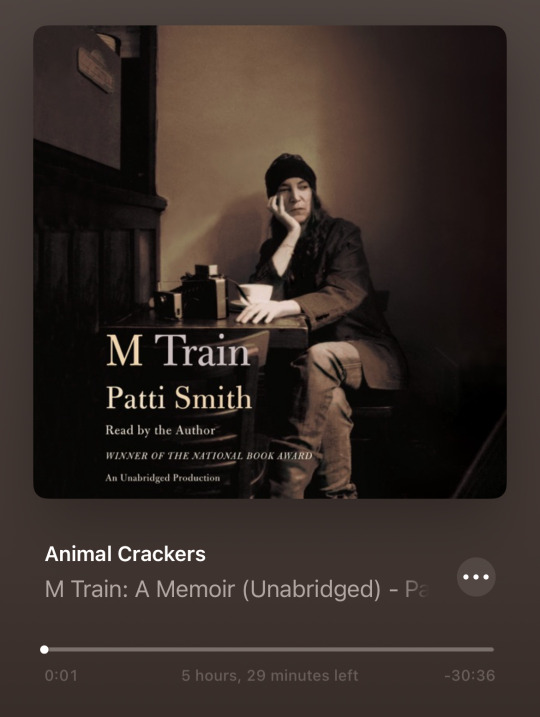
Listening to Patti Smith read “M Train” while I read along… life is beautiful & worth living
#patti smith#robert mapplethorpe#books and reading#reading#poetry#punk rock#new york#music#art#m train
0 notes